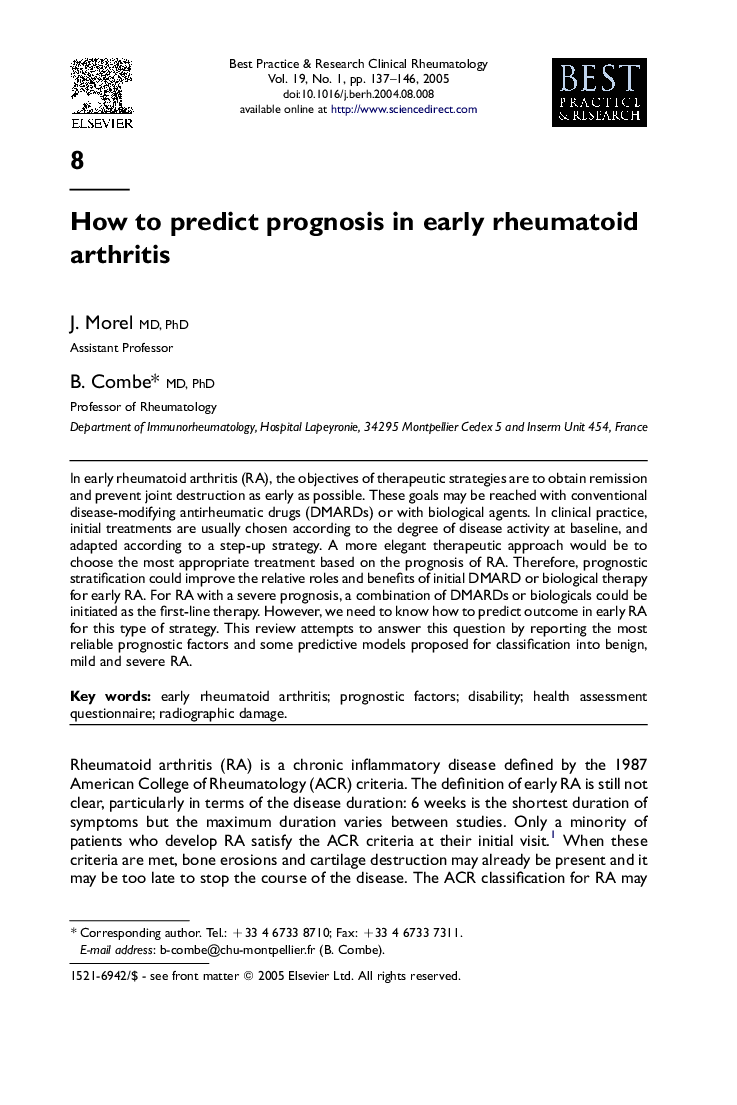| Article ID | Journal | Published Year | Pages | File Type |
|---|---|---|---|---|
| 9261997 | Best Practice & Research Clinical Rheumatology | 2005 | 10 Pages |
Abstract
In early rheumatoid arthritis (RA), the objectives of therapeutic strategies are to obtain remission and prevent joint destruction as early as possible. These goals may be reached with conventional disease-modifying antirheumatic drugs (DMARDs) or with biological agents. In clinical practice, initial treatments are usually chosen according to the degree of disease activity at baseline, and adapted according to a step-up strategy. A more elegant therapeutic approach would be to choose the most appropriate treatment based on the prognosis of RA. Therefore, prognostic stratification could improve the relative roles and benefits of initial DMARD or biological therapy for early RA. For RA with a severe prognosis, a combination of DMARDs or biologicals could be initiated as the first-line therapy. However, we need to know how to predict outcome in early RA for this type of strategy. This review attempts to answer this question by reporting the most reliable prognostic factors and some predictive models proposed for classification into benign, mild and severe RA.
Related Topics
Health Sciences
Medicine and Dentistry
Immunology, Allergology and Rheumatology
Authors
J. (Assistant Professor), B. (Professor of Rheumatology),
